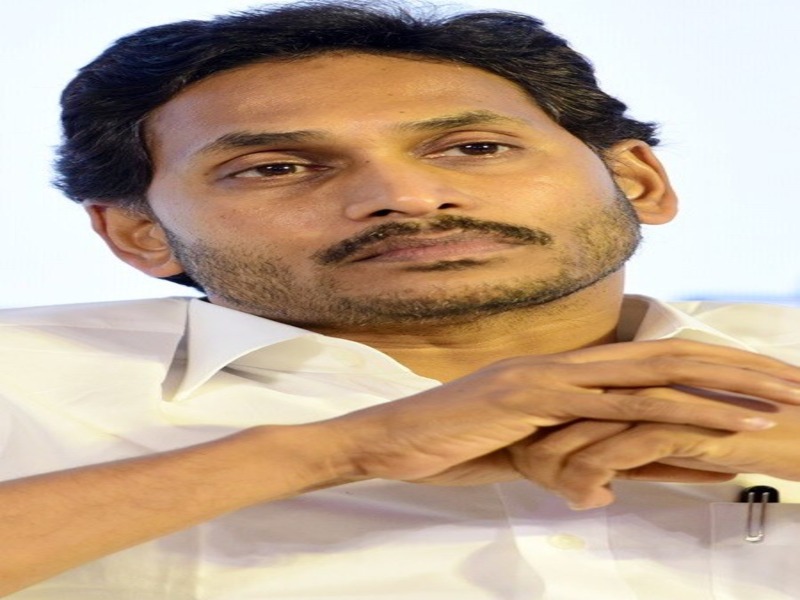In the aftermath of the 2024 Lok Sabha elections, Jagan’s political fate hangs in the balance. Critics speculate whether his downfall stemmed from clashes of ego or perceived insensitivity towards religious sentiments. This analysis delves into the intricate dynamics that shaped Jagan’s electoral defeat and its implications for the future.
The 2024 Lok Sabha elections have delivered a significant blow to Jagan Mohan Reddy, leader of the Yuvajana Sramika Rythu Congress Party (YSRCP). Analysts are delving into the reasons behind this electoral defeat, with a strong focus on Jagan’s perceived ego and controversial approach towards other religions. This analysis aims to uncover the pivotal factors that contributed to his party’s poor performance, shedding light on the intersection of political strategy and religious respect.
The Rise and Fall of Jagan Mohan Reddy
Jagan Mohan Reddy, who once enjoyed a meteoric rise in Andhra Pradesh politics, has seen his influence wane significantly in the recent elections. The defeat of YSRCP is attributed to a blend of political missteps and a failure to maintain the delicate balance required in a diverse and multi-religious nation like India.
Controversial Stances and Religious Sensitivities
Jagan’s tenure has been marred by controversies, especially concerning his stance on religious issues. Critics argue that his policies and public statements have often displayed a lack of respect for the religious sentiments of various communities. This is a critical misstep in a country where religion plays a central role in societal dynamics.
One of the key incidents frequently cited is the alleged preferential treatment towards his own religion while marginalizing others. This perception has created a sense of alienation among voters from different religious backgrounds, leading to widespread discontent. For instance, the implementation of policies that were seen as favoring Christian institutions and the perceived neglect of Hindu temples and festivals created a significant backlash.
The Impact of Ego in Leadership
Political pundits suggest that Jagan’s ego played a crucial role in his downfall. His reluctance to engage in coalition politics and his tendency to alienate potential allies within the state and at the national level have been seen as major strategic errors. The absence of a collaborative approach alienated not only political partners but also a substantial portion of the electorate who viewed his leadership style as autocratic.
Rational Analysis of Religious Respect
In a secular and pluralistic society like India, respecting religious diversity is not just a moral obligation but a strategic necessity for any political leader. Jagan’s approach, which appeared to prioritize his own religious community, was perceived as undermining the secular fabric of the nation. This not only alienated significant portions of the electorate but also sparked widespread criticism.
From a rational standpoint, effective leadership in a diverse country necessitates a balanced and inclusive approach to religious issues. Policies must be framed with an understanding of the cultural and religious sensitivities of all communities. The failure to do so, as seen in Jagan’s case, can lead to a loss of trust and support among voters.
Narratives from the Ground
Voter sentiment from key constituencies highlights a growing dissatisfaction with Jagan’s governance. Many citizens expressed concerns over his inability to address core issues such as unemployment, infrastructure development, and public welfare, which were overshadowed by his controversial religious policies.
A voter from Vijayawada, who wished to remain anonymous, shared, “Jagan’s government has done little to respect our traditions and festivals. It felt like our religious practices were being sidelined, which is unacceptable.”
Similarly, a political analyst noted, “Jagan’s downfall is a classic case of how ego and a narrow-minded approach towards religion can alienate a diverse voter base. His failure to be inclusive in his governance has cost him dearly.”
Moving Forward: Lessons to Learn
The outcome of the 2024 Lok Sabha elections serves as a crucial lesson for political leaders across the spectrum. It underscores the importance of humility, respect for all religions, and the need for an inclusive approach in governance. For Jagan Mohan Reddy, this electoral defeat could be an opportunity to introspect and recalibrate his strategies, focusing on bridging communal divides and fostering a more inclusive political environment.
Jagan’s ego and his approach towards other religions have undeniably played a significant role in the YSRCP’s poor performance in the 2024 Lok Sabha elections. As the political landscape in Andhra Pradesh and India at large continues to evolve, leaders must prioritize unity, respect for diversity, and collaborative governance to ensure long-term success and stability.
By addressing these critical issues, Jagan Mohan Reddy can potentially rebuild his political career and regain the trust of a diverse electorate. In politics, respect and inclusivity are paramount, and this lesson is clearer than ever. #hydkhabar


Ohh.